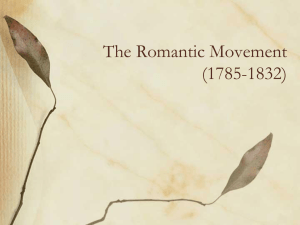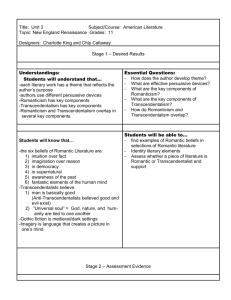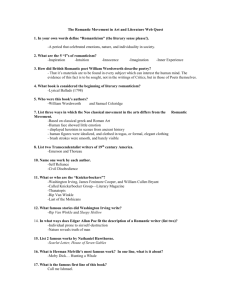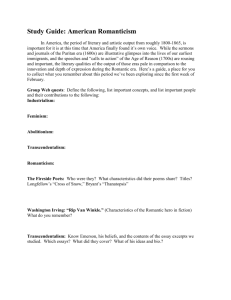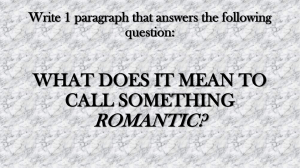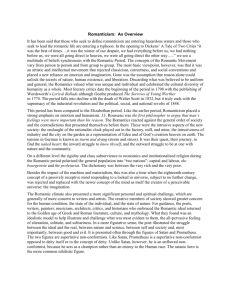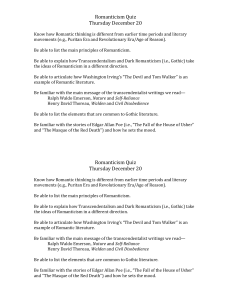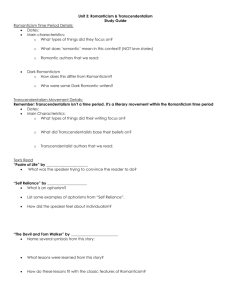Age of Reason aka Age of Enlightenment
advertisement
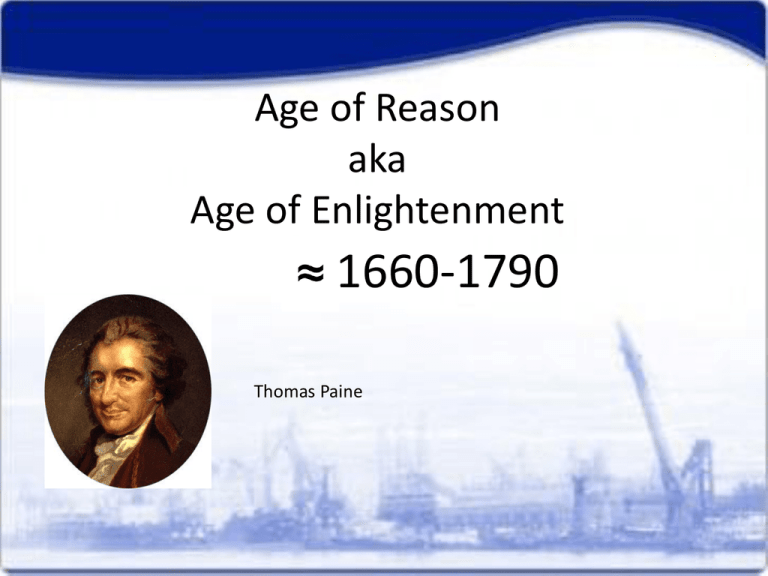
Age of Reason aka Age of Enlightenment 1660-1790 Thomas Paine Age of Reason • Reason/Ration – The rational mind was God’s greatest gift to humanity, what separated us from and lifted us above the animals Age of Reason • Objectivity – The state or quality of being true outside an individual’s feelings, experiences, biases, or interpretations. The belief that truths are universal and repeatable. Scientific fact. Age of Reason • Science – Scientific Revolution • Universities • Academies and Societies – – – – Galileo Copernicus Isaac Newton William Herschel (circulation of blood) Age of Reason • Community/Nation – The individual’s greatest role is to sacrifice individual goals for the greater good of the community; you are a cog on a gear of a wheel of an arm of a part of a section of a machine. – Extend the idea of community enough and you have a Nation (and nations were just now being invented) Age of Reason • City/Urban (Industrial) – End of Enlightenment saw beginning of Industrial Revolution and end of Cottage Industries – Great migration from rural to urban Age of Reason • Deism – Why do bad things happen to good people? – God exists but is dormant – Argument from Design (nature) – Cosmos=giant watch – God=watchmaker Age of Reason • Truth (capital T) – Every question has an answer – Thomas Jefferson: “We hold these truths to be self evident, that all men are created equal.” Age of Reason • Stylized Language Death, be not proud, though some have called thee Mighty and dreadful, for thou art not so; For those whom thou think'st thou dost overthrow Die not, poor Death, nor yet canst thou kill me. From rest and sleep, which but thy pictures be, Much pleasure; then from thee much more must flow, And soonest our best men with thee do go, Rest of their bones, and soul's delivery. John Freakin’ Donne Age of Reason • Nature – Nature was a thing—one that was at our disposal – Chop it up, nail it together, build a house – Chop it up, put it under a slide, study it – Chop it up, throw it on the grill—dinner! 1790-1837 Caspar David Friedrich “Wanderer Above the Sea and Fog” Romanticism Age of Reason Concept of Romantic Concept of • Reason/Ration • Emotion Becomes . . . – Center of Being moves from Head to Heart Romanticism Age of Reason Concept of Romantic Concept of • Objectivity • Subjectivity Becomes . . . – Based on feelings, experience, individual – Perfect example would be . . . Romanticism Ferris Bueller Cameron experiencing The Subjective Moment Romanticism Age of Reason Concept of Romantic Concept of • Science •Imagination Becomes . . . – That which we can imagine far oustrips that which we can build Romanticism Age of Reason Concept of Romantic Concept of • Community/ Nation •Individual/Self –I matter; I am Becomes . . . important Romanticism Age of Reason Concept of Romantic Concept of • City/Urban Life • Country/Rural/ Pastoral Becomes . . . – Urban living requires several artifiacal layers of being; rural living is more genuine Romanticism Age of Reason Concept of Romantic Concept of • Deism • Pantheism Becomes . . . – Not ancient Greek concept – Divinity is everywhere, especially within us – Ralph Waldo Emerson, Transcendentalism, “Divinity School Address” (1838) Romanticism Age of Reason Concept of • Truth Becomes . . . Romantic Concept of • truth • truth (small “t”) is subjective; everyone has their own truth and everyone’s truth is valid • A perfect example is . . . Romanticism Ferris Bueller Cameron again, experiencing his own inner truth Romanticism Age of Reason Concept of Romantic Concept of • Stylized Language • “The common language of common men,” per Becomes . . . William Wordsworth and Samuel Taylor Coleridge (preface to Lyrical Ballads) Romanticism Age of Reason Concept of Romantic Concept of • Nature • Nature – A resource for our disposal Becomes . . . – Organic – Primal, pure – Inspiration – Organic Romanticism Additional Concepts Blank Verse (unrhymed iambic pentameter) Youth (Child, Innocence) The Quest, The Journey William Blake 1757-1827 William Blake William Blake Very religious, but believed Bible: 1. Should be read as metaphor 2. Was for a particular time and place “I must create a system or be enslaved by another man’s” Felix Culpa/Binary Opposition Songs of Innocence Songs of Experience
